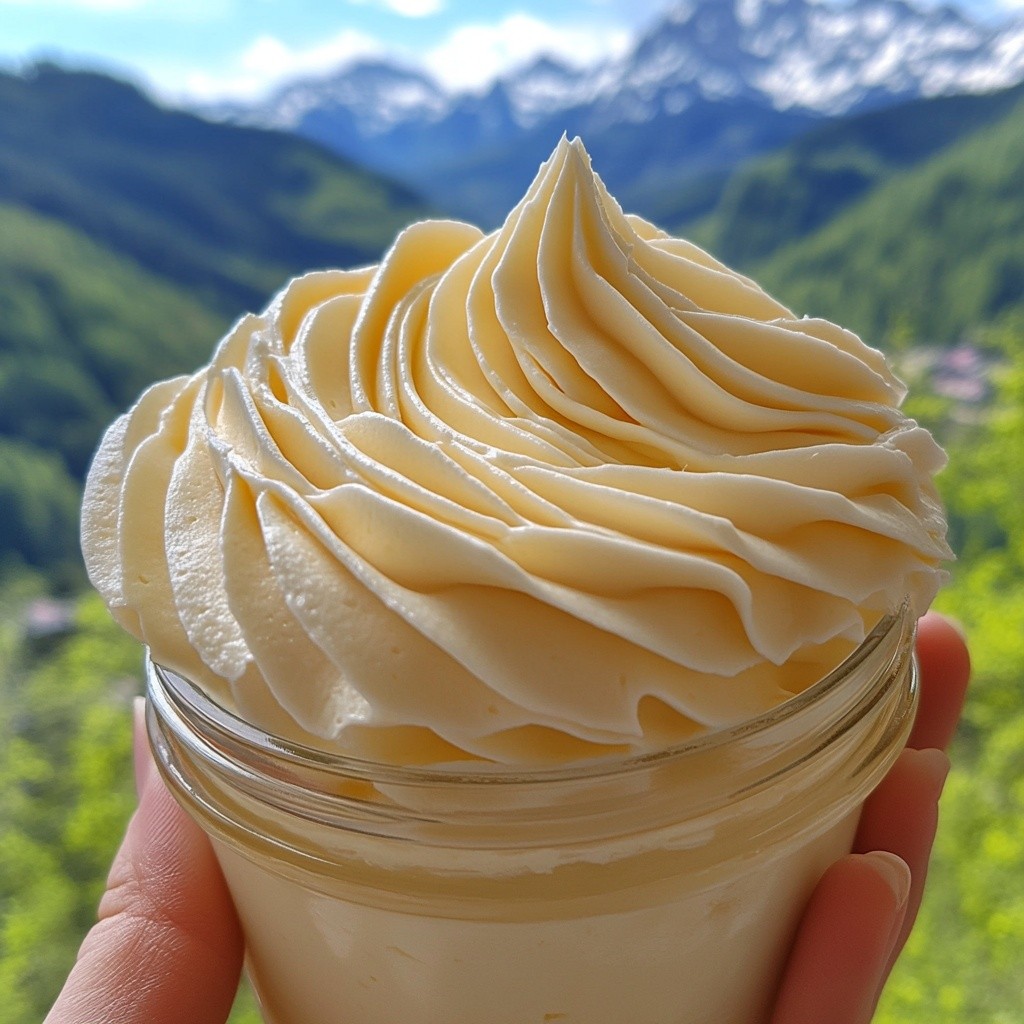Russian Buttercream is a smooth, rich, and incredibly simple frosting that only requires three ingredients! With its silky texture and subtly sweet flavor, this buttercream is perfect for frosDecadent and Silky Russian Buttercream
Russian Buttercream is a game-changer in the world of frosting. With just a handful of simple ingredients, this buttercream achieves a luxuriously smooth texture and rich flavor. It’s perfect for cakes, cupcakes, or even as a decadent filling. This foolproof recipe highlights the creamy sweetness of condensed milk, balanced with butter and a hint of vanilla.
Why You’ll Love Russian Buttercream
Russian Buttercream is not only easy to make, but it’s also less sweet than traditional buttercreams, making it a favorite for those who appreciate a more balanced flavor profile. With no need for powdered sugar, this frosting comes together quickly, using pantry staples you likely already have.
The Ingredients You Need
- Unsalted Butter: Softened to room temperature, butter is the base of this buttercream. It provides richness and a silky texture.
- Sweetened Condensed Milk: The star ingredient! This adds sweetness and creaminess without the need for additional sugar.
- Vanilla Extract: A splash of vanilla enhances the overall flavor, giving the buttercream a warm and inviting taste.
- Salt: Just a pinch balances the sweetness and brings out the natural flavors of the other ingredients.
Making the Perfect Russian Buttercream
- Prep Your Butter: Before you begin, make sure your butter is completely softened. Cold butter will result in a lumpy buttercream, so allow it to reach room temperature naturally.
- Whip it Good: Place the softened butter in a stand mixer fitted with a whisk attachment. Whip on high speed for 5 minutes, pausing occasionally to scrape down the sides of the bowl. This step ensures the butter is light and fluffy.
- Incorporate the Sweetened Condensed Milk: Reduce the mixer speed to medium. Gradually add the condensed milk in thirds, whipping after each addition until it’s fully incorporated.
- Add the Finishing Touches: Mix in the vanilla and salt, then whip on high speed for an additional minute. This final whip gives the buttercream its signature silky texture.
Pro Tips for Success
- Room Temperature Matters: Ensure all your ingredients are at room temperature for the smoothest consistency.
- Avoid Overbeating: Once all the ingredients are combined, avoid overwhipping, which can lead to a greasy texture.
- Adjust for Taste: Want a richer vanilla flavor? Add a touch more vanilla extract to suit your preference.
Where to Use Russian Buttercream
This versatile frosting pairs beautifully with a variety of desserts:
- Spread it over a fluffy sponge cake for a classic finish.
- Pipe it onto cupcakes for a polished look.
- Use it as a filling for sandwich cookies or pastries.
Frequently Asked Questions About Russian Buttercream
1. Can I use salted butter instead of unsalted butter?
Yes, you can use salted butter, but reduce or omit the added salt in the recipe to avoid overpowering the sweetness. Taste as you go to ensure the flavor is balanced.
2. Why is my buttercream separating?
Separation can occur if the butter or condensed milk is too cold. Make sure both are at room temperature before starting. If separation happens, keep whipping—it usually comes back together with time and patience.
3. Can I make Russian Buttercream ahead of time?
Absolutely! You can make it a day or two in advance. Store it in an airtight container in the refrigerator, and bring it back to room temperature before re-whipping to restore its texture.
4. Is this buttercream stable in warm weather?
Russian Buttercream is less stable in high heat compared to American Buttercream. If you’re serving it in a warm environment, consider chilling the dessert until just before serving.
5. Can I add flavors or colors to Russian Buttercream?
Yes! You can mix in flavor extracts (like almond or citrus), cocoa powder, or fruit purées for different flavors. Gel or powdered food coloring works best for vibrant colors without affecting the texture.
6. Can I use Russian Buttercream for piping?
Yes, but it’s softer than other buttercreams, so it’s best suited for simple designs. For intricate piping, chill the buttercream slightly to firm it up.
7. What’s the best way to store leftovers?
Store any leftover buttercream in an airtight container in the fridge for up to a week. You can also freeze it for up to 3 months. Thaw in the fridge overnight and re-whip before using.
8. Can I use homemade sweetened condensed milk?
Yes, but ensure it has the same consistency as store-bought condensed milk to achieve the proper texture.
Indulge in the creamy, smooth perfection of Russian Buttercream—your cakes and taste buds will thank you!

